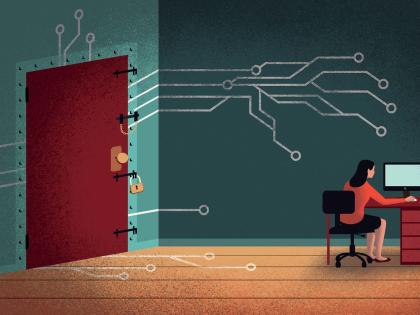During their last regular meeting of the academic year, on May 3, the Faculty of Arts and Sciences voted by a 3:2 margin to replace the “shopping” period—the beginning-of-term week in which students sample courses before making their selections—with a system of previous-term registration.
Formal discussion of the proposal had occupied a substantial portion of two prior meetings (see harvardmag.com/shopping-undergrad-22); the work to develop a replacement stretched back even further, to 2019. Although shopping week created administrative headaches, uncertainties for graduate students, and left some undergraduates scrambling at the last minute for courses whose section meeting times would fit their schedules, 96 percent of students in the College reportedly wished to retain it. During the faculty deliberations, more than a few professors who had attended Harvard as undergraduates also spoke in favor of the existing system. Several cited the importance of shopping to changing the direction of their subsequent careers.
Pierce professor of psychology Daniel Gilbert, arguing against such sampling, noted that people are happiest when their decisions are informed by the prior experiences of others, rather than their own impressions. He advocated use of the Q guide class summaries written by former students as a better model of course selection. Goelet professor of French history Mary Lewis suggested that faculty members who had attended the College and supported “shopping” were suffering from “confirmation bias.”
By and large, however, the faculty assessed the proposed change on the merits: one of the principal objections to “shopping” is the delay it imposes on getting classes into full swing, in a 12-week semester (a calendar reform adopted in 2004), that squeezes exams in before the December holiday break. The new system will take effect in the fall of 2023, when students register for spring 2024 classes; final details about the mechanics of liberalized course drop/add rules, enhanced advising, and more, were deferred to an implementation committee. For a full report, see harvardmag.com/shop-denouement-22.







